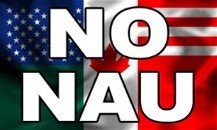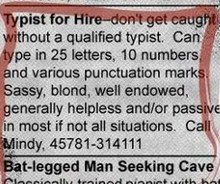http://www.youtube.com/watch?v=fNcDTIcDaVU
Then, please take the time to read this article by Tara Lohan in regard to the book,
http://www.globalresearch.ca/index.php?context=viewArticle&code=LOH20070425&articleId=5483
(Some selected excerpts from the article):
All across the United States, municipal water systems are being bought up by multinational corporations, turning one of our last remaining public commons and our most vital resource into a commodity.
The road to privatization is being paved by our own government. The Bush administration is actively working to loosen the hold that cities and towns have over public water, enabling corporations to own the very thing we depend on for survival.
---
"We came to see that the conflicts over water are really about fundamental questions of democracy itself: Who will make the decisions that affect our future, and who will be excluded?" they wrote in the book's preface. "And if citizens no longer control their most basic resource, their water, do they really control anything at all?"
---
...privatization means transforming citizens into customers. Or, in other words, making people engaged in a democratic process into consumers looking to get the best deal.
It is also means taking our most important resource and putting it at the whims of the market.
Currently, water systems are controlled publicly in 90 percent of communities across the world and 85 percent in the United States, but that number is changing rapidly, the authors report in "Thirst." In 1990, 50 million people worldwide got their water services from private companies, but by 2002 it was 300 million and growing.
There are a number of reasons to be concerned.
Globally, corporations are promoting water privatization under the guise of efficiency, but the fact is that they are not paying the full cost of public infrastructure, environmental damage, or healthcare for those they hurt," said Ashley Schaeffer of Corporate Accountability International. "Water is a human right and not a privilege."
---
The companies first pushed water privatization in developing nations. "But in many instances, those attempts didn't pan out as planned, it being difficult to gouge governments and customers that don't have a lot of money," Public Citizen reports. "The U.S., by contrast, presented the promise of a steady, reliable revenue stream from customers willing and able to pay water bills."
---
In Felton, Calif., a small regional utility ran the water system until it was purchased in 2001 by California American Water, a subsidiary of American Water, which is a subsidiary of Thames Water in London, which has also become a subsidiary of German giant RWE. Residents in Felton saw their rates skyrocket, "Thirst" reports. A woman who runs a facility for people in need saw her water bill increase from $250 to $1,275 a month.
(Link to the entire article: http://www.globalresearch.ca/index.php?context=viewArticle&code=LOH20070425&articleId=5483 )

Lol, AND THEN, read this piece describing "Public-Private Enterprise" and how Al Gore, the same traitor who is instrumental in causing the Global Warming Hype which threatens national sovereignties world wide, was also a major player in bringing about the whole notion of "Public-Private Partnerships."
Excerpt from an interview with United Nations expert, Joan Veon (interviewed by Geoff Metcalf for World Net Daily, August 27th, 2000):
http://worldnetdaily.com/news/article.asp?ARTICLE_ID=19651
Q: I'd like to throw a few key phases at you and get your response. "Public-private partnerships." That sounds pretty benign.
A: One of the things to remember is the United Nations never defines words. Actually, words end up becoming very hidden in their meaning. That was part of what I was trying to figure out in trying to understand what their agenda was. Public-private partnerships is a phrase I first came across in 1996. I spent six months researching it. I've written two books about it. It is extremely simple and very, very key. And let me say, it is Al Gore who has spearheaded a complete structural change of our government through public-private partnership. Interestingly enough, he's not even talking about it as to why the American people should elect him president when he has already restructured our Constitution. But a public-private partnership is exactly what it says.
Q: Break it down for us into its various components.
A: First of all, it is a partnership. It is a business arrangement. That is extremely important. The idea of any business is profit. The partners in this particular arrangement are both public and private. The public partners pertain to government: local, county, state, federal, foreign and international governments. They can all be involved, one or two or three can be involved.
Q: We have a real good example that was just pushed through and it seemed benign at the time. The agreement that Andy Cuomo blackmailed Smith and Wesson to sign was ostensibly a public-private partnership, which would have resulted in government control of a private industry.
A: The private partners are business, multinational, transnational corporations -- as well as nongovernmental organizations, these minions of a different philosophy other than the Constitution who are all funded by the foundations of the multinational, transnational corporations. So, what is a public-private partnership? It is the shifting of government responsibility and government services into a partnership with other parties -- primarily those who have deep pockets -- because your county, local and state governments are all bankrupt. What they are now saying is, "Look, we need stronger hands, deeper pockets to help us do what we used to do. We're going to do it a little differently."
Q: Once again, the golden rule: The guy with the gold makes the rules.
A: Exactly. They say, "We're going to do it in a partnership, a public-private partnership." The people of Dallas don't want their taxes raised, so they have to use what they call "innovative financing." The city sewer system has just shifted from being owned by the people of Dallas into this new entity, which is a partnership jointly owned by government and business. These people are sitting around the corporate table. The bottom line is, who has the power? Obviously, you and I know very clearly -- whoever has the deepest pockets and the most money has the power. What has just happened?
Q: A redistribution of assets?
A: Yes, sir. A major asset has been shifted out of governmental hands into a new relationship, a public-private partnership that is for business, which is, by way of philosophical bent, fascism, because fascism is the marriage between government and business. The bottom line now is profit -- and the citizens now become customers.
Why not privatize water, eh? Just steal it from us, the people, and then force us to buy it back at a profit for whichever Multinational Corporation stole it from us in the first place.
I mean, it's not like we haven't seen privatization popping elsewhere - like private mercenary forces hired by the government to go to the Middle East... or privatized "police forces" to suppress and terrorize the citizens of New Orleans after Hurricane Katrina.
Put the pieces together, people. This is some serious shit that is happening right underneath our noses.
I'd say "welcome to the New World Order," but I think the new leaders frown on Serfs believing they have a right to speak for themselves.


















































